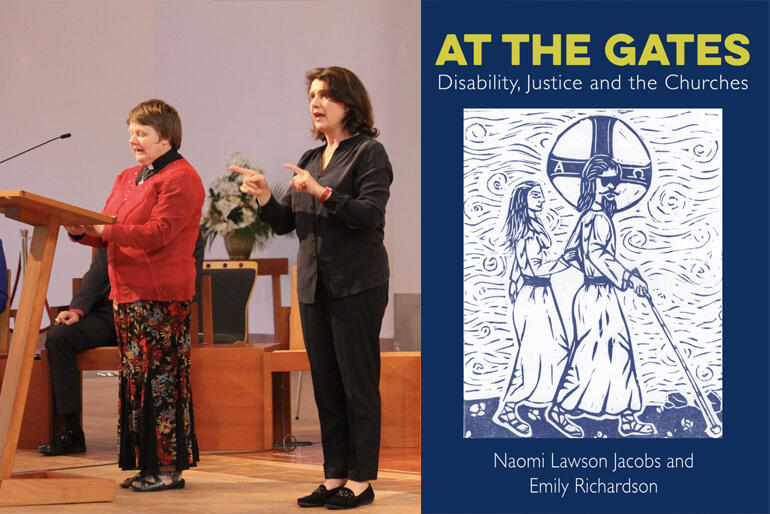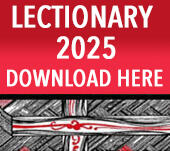
A newly published book 'At the Gates: Disability, Justice and the Churches' brings together 10 years of research among disabled Christians in England in an easy to read book which challenges churches to take the experience of disabled Christians seriously.
Professor John Hull, to whom this book is dedicated, saw disabled people “not so much as a pastoral problem as prophetic potential” for the church. This is at the core of the book that sees disabled Christians as prophets calling the church to be more fully the body of Christ where all people are embraced in all our humanity.
The authors of 'At the Gates: Disability, Justice and the Churches' interweave the voices of disabled Christians who are the storytellers on all aspects of church life from access and participation to reading scripture, healing and being the body of Christ.
A central question that authors Naomi Lawson and Emily Richardson raise is, 'Can ableism in the church be interrupted so God’s grace can make space for all God’s people?'
Churches often say 'Everyone is welcome' however many disabled people do not feel welcome or included, because of the effort of trying to fit into a community that does not cater for their needs.
This book may make some people uncomfortable with its direct challenge to the church about the ways disabled people are excluded and feel they do not belong.
For too long, disabled people have been cast as a 'pastoral problem' rather than the churches choosing to welcome the lived experience of disabled people with its potential to provide a new vision of ministry 'with,' rather than 'for' disabled people.
Pastoral care has often focused on caring for disabled people in the church.
In the process of caring, the witness of disabled Christians has been silenced.
A pastoral care model assumes that disabled people require care from the church, rather than the church community empowering disabled Christians and providing help to embrace a new way of being Church where all people are able to offer gifts and be interdependent.
Disability theology created by non-disabled people often focuses on how disabled people can be 'reached' or how they can be inspirational figures of faith for non-disabled people.
By contrast, theology such the work of disabled Christians featured in this book, focuses on the lived experience of disability and what insights this brings to theological conversations.
For example, bringing the experience of disabled people into reading scripture illuminates the 'embodiment' of the text that is often missing from our pulpits and study groups.
The authors and their writers set out how most disabled people do not have the luxury of ignoring their bodies, so in their reading the embodiment of the text becomes alive in new ways.
This understanding of embodiment brings deeper insights into the incarnation. Jesus, in resurrection, becomes the disabled God bearing scars of crucifixion. The upside-down nature of the Kingdom of God challenges the disability injustice within the church and society.
The book's chapter, “Fearfully and wonderfully made” is an excellent exploration of healing.
Healing can be a source of deep hurt for disabled Christians because well-meaning people sometimes will focus on their impairment rather than responding to a direct prayer request from the person.
At times, disabled people have had prayers for healing prayed over them without their consent. The focus of this chapter is that the church needs healing from ableism. It calls for a deeper more holistic way of healing, where all can flourish.
Near the conclusion of 'At the Gate' the authors discuss faith communities of disabled Christians and examine the validity of faith communities online.
For some disabled Christians, attending online may be the only way they can be involved in a faith community. Many people regret that the lessons from Covid, when disabled people felt much more part of faith communities, have not been learnt and once again disabled people find themselves on the margins of the church.
It is often the prophetic voices calling from the margins that awaken the church to issues of justice. These awakenings are throughout this helpful and insightful volume and have the potential to transform the church by opening wide the gates to embrace our full humanity.
As the authors of 'At the Gates: Disability, Justice and the Churches' say on page 240, “There is no ableism in the Kingdom of God”.

















Comments
Log in or create a user account to comment.